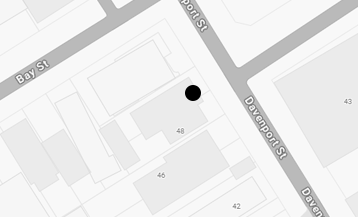In recent years, there have been rising cases of fraud, including card fraud and scams. Fraud is a serious criminal offence in New South Wales (NSW), carrying significant legal consequences. In this guide, we explain fraud laws in NSW, the elements required for a conviction, sentencing guidelines, and possible defences.
If you’ve been charged with fraud, call one of our expert Criminal Lawyers Sydney now.
What Is Fraud Under NSW Law?
Fraud is defined under Section 192E of the Crimes Act 1900 (NSW) as obtaining property or financial advantage, or causing financial disadvantage, through deception or dishonesty. This broad definition covers a wide range of conduct, from small-scale dishonesty to complex financial schemes.
Some common examples of fraud include:
- Submitting false insurance claims
- Making unauthorised charges on another person’s credit card.
- Creating fake invoices to secure payments
- Lying to obtain a loan or financial assistance
- Manipulating financial records to mislead others
- Identity theft for financial gain
These examples illustrate that fraud can occur in both personal and business settings, often with severe consequences.
Overview of Fraud Offences in NSW
Fraud offences in New South Wales are mainly outlined in Part 4AA of the Crimes Act 1900. This part covers a variety of fraudulent activities, and the following sections highlight some of the most significant:
General Fraud Offences
Section 192E makes it a crime to obtain property or financial gain through deception. It covers a wide range of fraudulent actions, such as:
- Faking documents, like contracts or signatures.
- Lying to get financial benefits, such as falsifying income to secure a loan.
- Using false information to claim things like insurance or medical benefits.
Destroying Records
Section 192F targets people who destroy or change records to cover up fraud. Common examples include:
- Shredding documents to hide stolen funds.
- Deleting records to conceal tax fraud or other illegal activities.
False Statements
In Section 192G, the law focuses on people who make false statements to deceive others for personal gain. This includes:
- Lying on financial documents to get loans or insurance payouts.
- Faking qualifications to land a job or promotion.
Corporate Officer Fraud
Section 192 applies to fraud committed by corporate officers (e.g., directors or high-ranking employees), such as:
- Misusing company funds for personal expenses.
- Falsifying company financial records to mislead others for personal gain.
Key Points and Penalties
- Maximum penalty under Section 192E: Up to 10 years imprisonment for serious fraud. Lesser fraud cases heard in the Local Court can carry up to 2 years’ imprisonment.
- Penalties for Sections 192F and 192G: Up to 5 years imprisonment, depending on the severity of the offence.
- Maximum penalty under Section 192H: Up to 7 years imprisonment
What Prosecutors Must Prove in a Fraud Case
To secure a fraud conviction, the prosecution must prove beyond a reasonable doubt that:
There Was Deception
The accused must have deliberately misled another person or entity, such as falsifying documents, making false statements, or using fake identities. For example, if someone is accused of Centrelink fraud, they might claim that any mistakes in their application were unintentional. If the prosecution cannot prove that the person intentionally deceived Centrelink, the court may decide to dismiss the charge.
The Conduct Was Dishonest
The accused’s actions must be considered dishonest by the standards of a reasonable person in the community. For instance, if an employee changes accounting records to steal money, the court will assess whether most people would view this as dishonest behaviour. The focus is on how society generally understands right and wrong.
There Was a Financial Gain or Loss
The prosecution must prove that the accused either gained money or caused someone else to lose money. For example, if a person falsely applies for a loan but the lender doesn’t lose any money, this could influence the penalty or sentence the accused receives.
Sentencing for Fraud Offences in NSW
Sentencing for fraud depends on several factors:
Amount Involved: Fraud penalties vary depending on the amount involved, with lighter penalties for smaller amounts and more severe consequences, such as imprisonment, for larger fraud cases.
Duration and Sophistication of the Offence: Penalties depend on the nature of the fraud, with lighter consequences for one-off incidents and harsher sentences for repeated or complex fraud, especially in organised cases.
Breach of Trust and Impact on Victim: Fraud involving a breach of trust, such as by professionals or against vulnerable victims, results in stricter penalties due to the severity of the betrayal. In contrast, fraud without a breach of trust or involving less harm typically leads to lighter sentences.
Factors That Can Influence Sentencing: Several factors, called mitigating factors, can influence sentencing and potentially lead to reduced penalties for the offender, such as:
- Early Guilty Plea: When the accused admits their guilt at the earliest opportunity, typically before the trial begins. This can show remorse and willingness to take responsibility, often leading to a reduced sentence.
- Cooperation with Authorities: Defendants who assist in the recovery of funds or provide valuable information to authorities may receive more lenient sentences.
- Rehabilitation and Remorse: Courts may reduce penalties based on the offender’s genuine remorse and steps toward rehabilitation, such as repaying stolen funds.
- Mental Health Issues: If an offender’s mental health significantly impacts their ability to understand their actions or make sound decisions, the court may consider this when determining the penalty. This could lead to reduced sentences, such as rehabilitation programs or treatment orders, instead of harsher penalties.
Court Process for Fraud Charges
Fraud cases in NSW can be heard in either the Local Court or District Court depending on the severity of the offence.
- Local Court: Handles less serious fraud cases, with a maximum sentence of 2 years per charge.
- District Court: Deals with more serious cases, with a maximum penalty of 10 years for major fraud offences.
The choice of court is based on the complexity and severity of the fraud charge.
Conclusion
While fraud charges are serious, having experienced legal representation can significantly impact your outcome. Each case is unique, and early intervention often leads to better results. Understanding the charges, potential defences, and likely outcomes helps you make informed decisions about your case.
Strenuous Legal Defence
Facing fraud charges can be overwhelming, but experienced legal representation can significantly affect the outcome of your case. With a proven track record of securing favourable outcomes, our expert Sydney Fraud Charge Lawyers can provide:
- Immediate legal advice and representation
- Tailored defence planning
- Negotiation for reduced charges or penalties
- Strong advocacy in court
- Guidance on rehabilitation and reparation to improve sentencing outcomes
If you’ve been charged with Fraud in Sydney, don’t delay. Get expert representation now!








